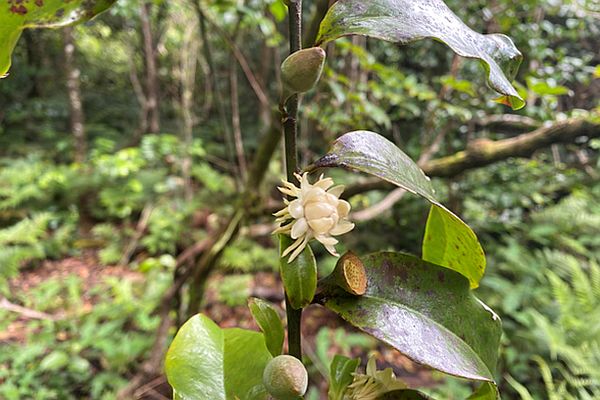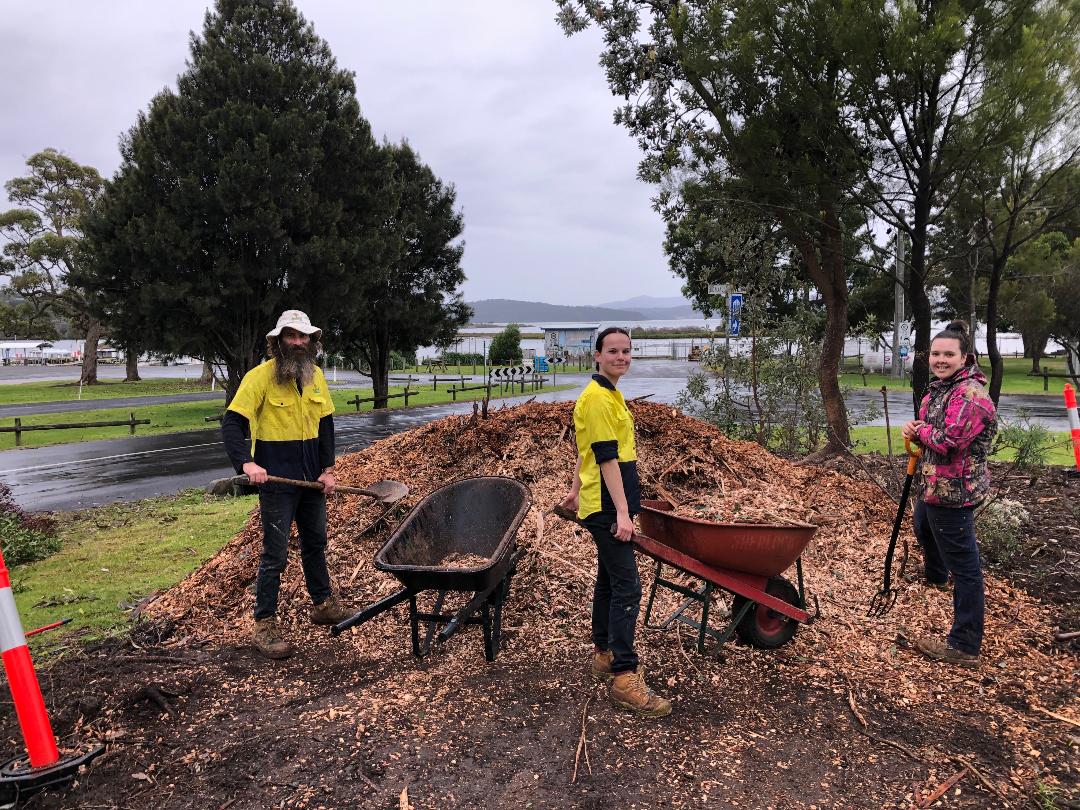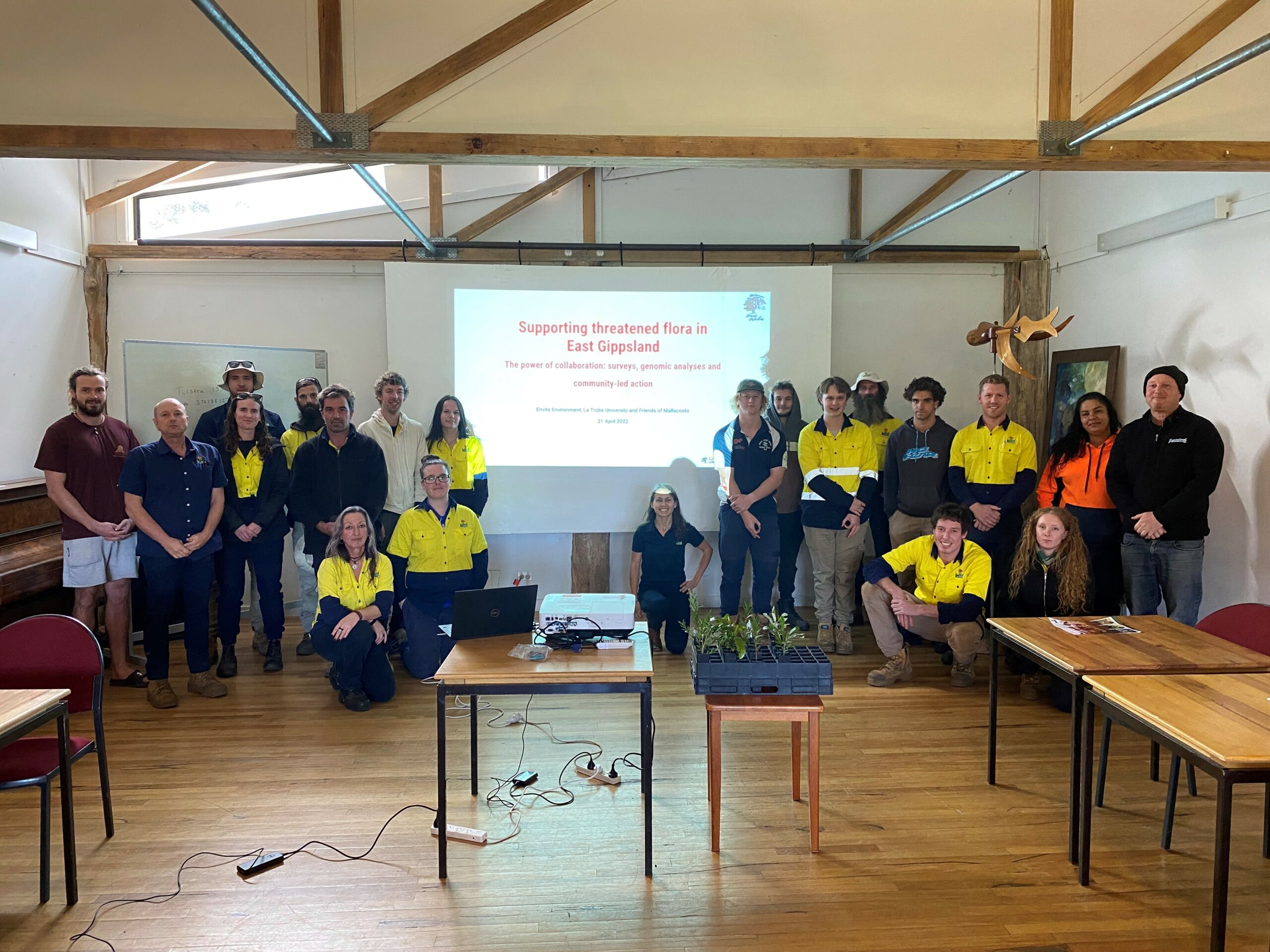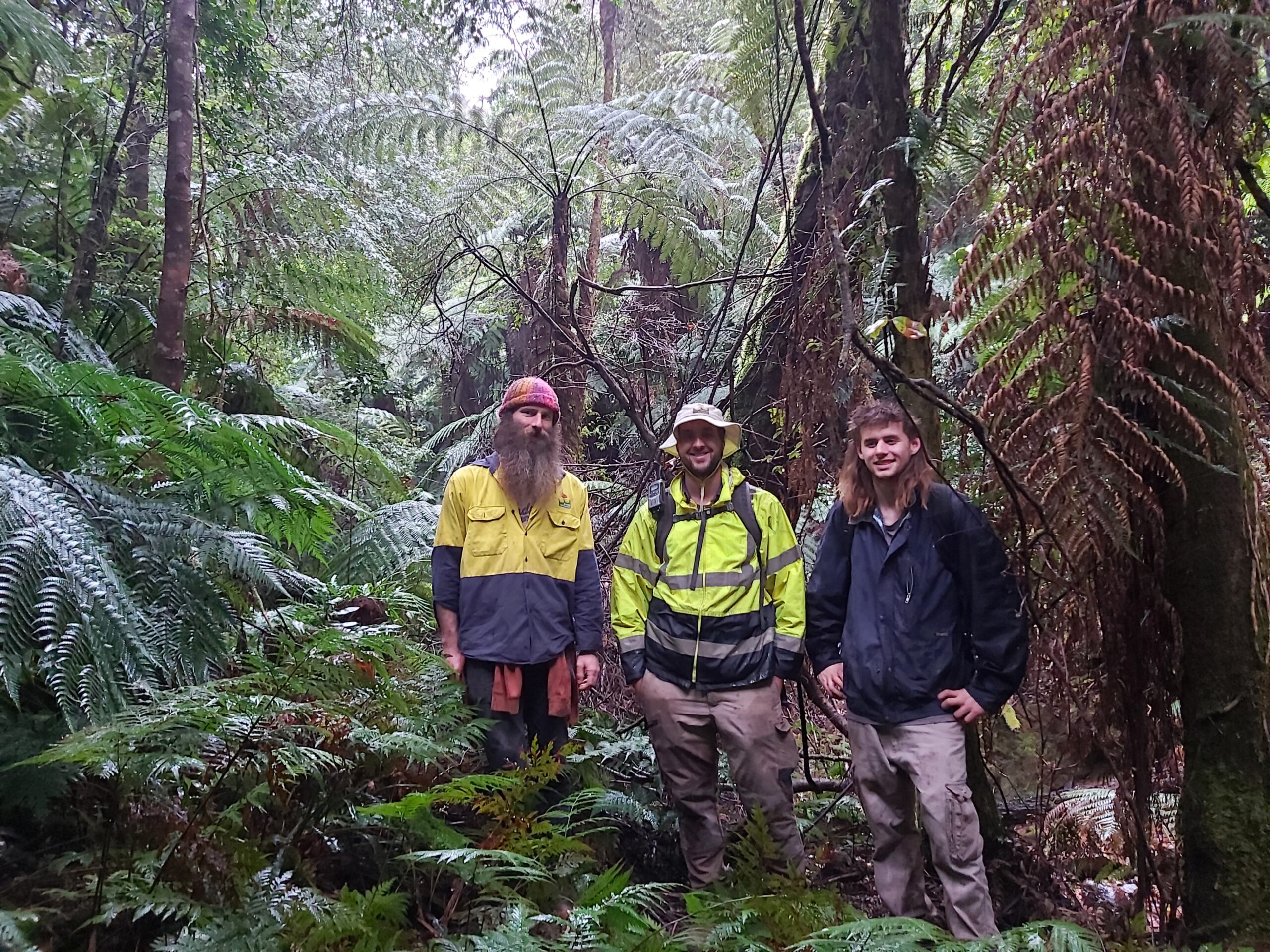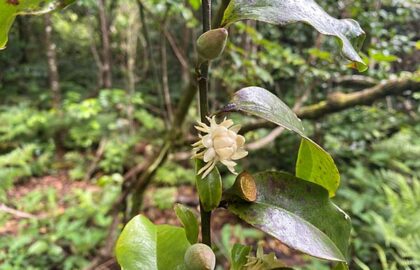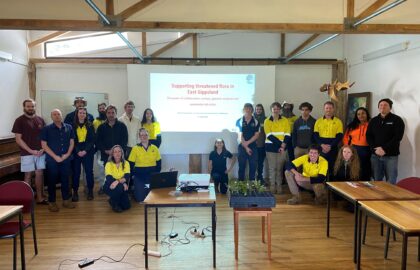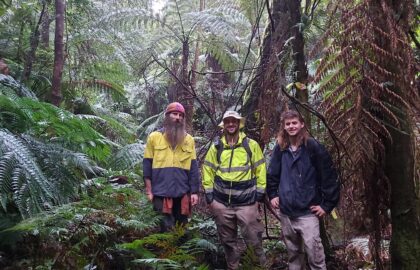Harnessing Genetics to Restore Threatened Flora Resilience
A collaborative initiative working to secure the future of East Gippsland's threatened flora
Australian Government
Service Classification/s:
East Gippsland, Victoria
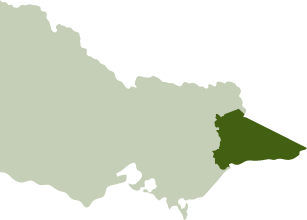
Overview:
East Gippsland, Victoria, is unique in terms its natural environments and biodiversity. Approximately three quarters of the land area comprises national parks and other public land reserves, and there are 125 species that rely on East Gippsland for 50-100% of their recorded range. Thirty percent of these species occur nowhere else on Earth.
Despite the importance of East Gippsland for biodiversity, surprisingly little environmental research has been undertaken in support of on-ground efforts to conserve, maintain and restore species and ecosystems in the region. Over 100 plant species in East Gippsland are listed as vulnerable or endangered at the national- or state-level, while the status of a further 90 remains uncertain. Many of these plants exist as small and/or localised populations and, for a great majority, their known distributions were severely burnt in the 2019/20 bushfires.
Outcomes:
Together, Envite, La Trobe University, Royal Botanic Gardens Victoria, the Friends of Mallacoota, and partners are working on an initiative to secure the future of East Gippsland’s threatened flora. We are collectively achieving this through:
- Surveys to assess the post-bushfire status and distribution of species in the wild;
- Assessing the genomic diversity and structure of surviving, re-sprouting or emerging plants; and
- Establishing ex situ ‘insurance’ populations in case of future environmental catastrophes.
The post-fire recovery and establishment of plans that mitigate risks to the survival of threatened flora in the region are the focus of this collaborative work. Findings are being used to inform policy (revising species conservation status where appropriate) and to guide on-ground practical management and recovery efforts, e.g. through translocation and population mixing to maintain gene flow where necessary for long-term species resilience and survival.
Envite’s role in this project has been funded by a Landcare Led Bushfire Recovery Program Grant, supported by the Australian Government’s Bushfire Recovery Program for Wildlife and their Habitat, and a Department of Environment, Land, Water and Planning 2021 Community Volunteer Action Grant.
Related links:
Project webpage (ResearchGate)
Click on the image to enlarge


